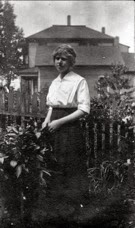A gentleman came into the Harbor History Museum a couple weeks ago, and while he was there he asked me if I could help him research the history of Martinolich Shipbuilding Compny when they were located at Dockton, Washington in the early 1900s.
Well, although Dockton is not part of the greater Gig Harbor area, and Martinolich Shipbuilding Company was never located in Gig Harbor, I hate to say no to anyone looking for historic information. Besides Martinolich Shipbuilding Company did build a few boats for the local Gig Harbor fishermen in the early 1900s.
So I thought, maybe I can find a few leads for the gentleman to check out and make his search a little easier. Of course, the internet is a tremendous help: you type in a word and something comes up. Is it what you want? Probably not, but then again maybe something will jog a memory in a new direction. Then too there are all the books on the local history published by Arcadia Publishing. The one they did with Robin Paterson and Jean Finlay entitled The Mosquito Fleet of the South Puget Sound happened to have a picture of the gentleman’s Grandfather’s 1909 vessel which had been built by Martinolich Shipbuilding Company when they were still located in Dockton. But, unfortunately the gentleman already knew that. However in the acknowledgements in the back of the book something caught my eye!
It had absolutely nothing to do with the gentleman’s search.
But, it did have something to do with Gig Harbor’s history, and it had something to do with past HHM blogs! One on the Mosquito Fleet of Puget Sound and another on Emmett Hunt.
Every Wednesday, there is a blog entry taken from the Wednesday entries in Emmett Hunt’s diaries which are part of the Harbor History Museum’s (HHM) Collections. Why Wednesday and not some other day of the week? Because when I was asked to write the blog entries from the museum, the curator suggested that I always do an entry from Emmett’s diary on the day I work at the museum. And so, all the blogs not taken from the diary are now published on Thursday with Emmett still having Wednesday as his own special day. And, we did 1881,and now are into 1882 - and soon to start 1883.
Miles Brazilla andMaritta Trim Hunt, Emmett's Parents
The Miles B. Hunt Family onMiles & Maritta Hunt's Wedding Anniversary
Miles Brazilla andMaritta Trim Hunt, Emmett's Parents
The Miles B. Hunt Family onMiles & Maritta Hunt's Wedding Anniversary
Oh, but let’s get back to what I found in the acknowledgments of The Mosquito Fleet of the South Puget Sound. There was a book listed that had been published by Mostly Books in 1984, a bookstore here in Gig Harbor owned by Harry Dearth (later after he sold Mostly Books, he operated No Dearth of Books until 2011). The name of the book is Early Gig Harbor Steamboats, by Lucile McDonald, and based upon the Journals of Emmett E. Hunt.
Lucile McDonald was a veteran newspaperwoman, regional historian and co-author or author of 28 books, several with maritime settings. She was honored for her service as a long-time member of the Sea Chest’s editorial Board. (Foreword written by Mostly Books August 1984 although I put into present tense. Sea Chest Magazine is the official quarterly maritime journal of the Puget Sound Maritime Historical Society.)
Lucile McDonald wrote the following in her Introduction to Early Gig Harbor Steamboats “ Hunt had a strong sense of humor and called his jottings “A Memorandum of Events, which may be consulted at any time by myself or others for the purpose of moral improvement.” From the diaries it is plainly evident that the young man had profited from whatever schooling he received. He must have had at least a high school education, for he could quote Latin phrases and literary allusions, he was a good speller and could write a fine hand when not in haste. We do not know what kind of a teacher he was in the country schools except that he would not be put upon by older smart alecky pupils. He exhibited great patience in tutoring his handicapped son and he was persistent and good natured in his business dealings. Lucile goes on to say “After Hunt died the diaries were inherited by his daughter, Olive, and carried to Akron, Ohio. They were not heard of until her death when Norman Blanchard, a former president of the maritime historical society, chanced to meet her husband, John Cox, on a boat trip in 1972. The subject of preserving early records came up in their conversation and Blanchard persuaded Cox to donate the books to the society’s library.”
I didn’t happen to find a copy of the book at the HHM but discovered the Pierce County Library system has three copies of it; one copy is in the Gig Harbor library. The book is only 72 pages in length, and starts chapter one with a title “Emmett Hunt Settles on Puget Sound” ending with Chapter eight “Tough Times, Tougher Tragedies —Emmett Leaves The Water”. I also checked our local book stores for a copy; I found one copy that was in the inventory when No Dearth of Books transferred ownership in 2011. And yes, I snatched it up!
The steamer "Ariel" on the shores of Lake Washington in 1941
Unfortunately this book won’t help our visitor in his search for the history of the Martinolich Shipping Company in Dockton, Washington, but it does fill in some of the history on our own Emmett Hunt and his steamboats as well as some of his record on his life, both on and off the water.
© 2012 Harbor History Museum. All rights reserved.














